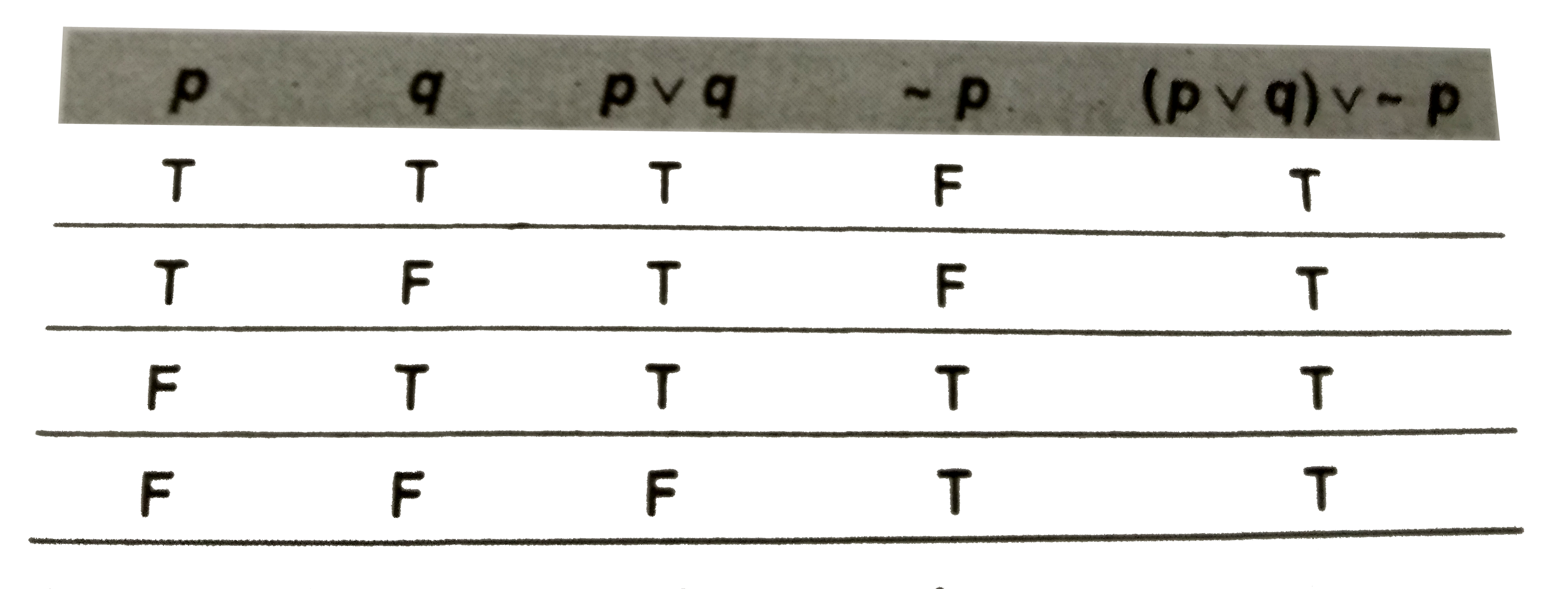Let p and q be two statements, then (p∨q)∨~p is
A
tautology
B
contradiction
C
Both (a) and (b)
D
None of these
Video Solution
Text Solution
The correct Answer is:A

It is clear that (p∨q)∨~p is a tautology.
|
Topper's Solved these Questions
- MATHEMATICAL LOGIC BOOK - MHTCET PREVIOUS YEAR PAPERS AND PRACTICE PAPERSCHAPTER - MATHEMATICAL LOGIC EXERCISE - PRACTICE EXERCISE (Exercies 2 (MISCELLANEOUS PROBLEMS))
26 Videos
- MATHEMATICAL LOGIC BOOK - MHTCET PREVIOUS YEAR PAPERS AND PRACTICE PAPERSCHAPTER - MATHEMATICAL LOGIC EXERCISE - MHT CET CORNER
22 Videos
- Linear Programming BOOK - MHTCET PREVIOUS YEAR PAPERS AND PRACTICE PAPERSCHAPTER - Linear Programming EXERCISE - MHT CET Corner
13 Videos
- MATRICESBOOK - MHTCET PREVIOUS YEAR PAPERS AND PRACTICE PAPERSCHAPTER - MATRICESEXERCISE - MHT CET CORNER
18 Videos
Similar Questions
Knowledge Check
Let p and q be two statements. Then, (~p∨q)∧(~p∧~q) is a
AtautologyBcontradictionCNeither tautology nor contradictionDBoth tautology and contradictionIf p and q are tow statements, then ~(p∧q)∨~(q⇔p) is
AtautologyBcontradictionCneigher tautology nor contradictionDEigher tautology or contradictionIf p and q are two statements, then p∨~(p⇒~q) is equivalent to
Ap∧~qBpCqD~p∧q
Consider the two statements :
(S1):(p→q)∨(~q→p) is a tautology
(S2):(p∧~q)∧(~p∨q) is a fallacy
Then :
View SolutionSuppose p and q are two statements, then ~[p→(p∨~q)] is equivalent to
View SolutionLet p : 7 is not greater than 4 and q : Paris is in France
be two statements. Then, ~(p∨q) is the statement
View SolutionThe logical statement (p→q)∨(q→~p) is :
View SolutionThe dual of statement [p∨q)∧~q]∨~q is
View Solution
